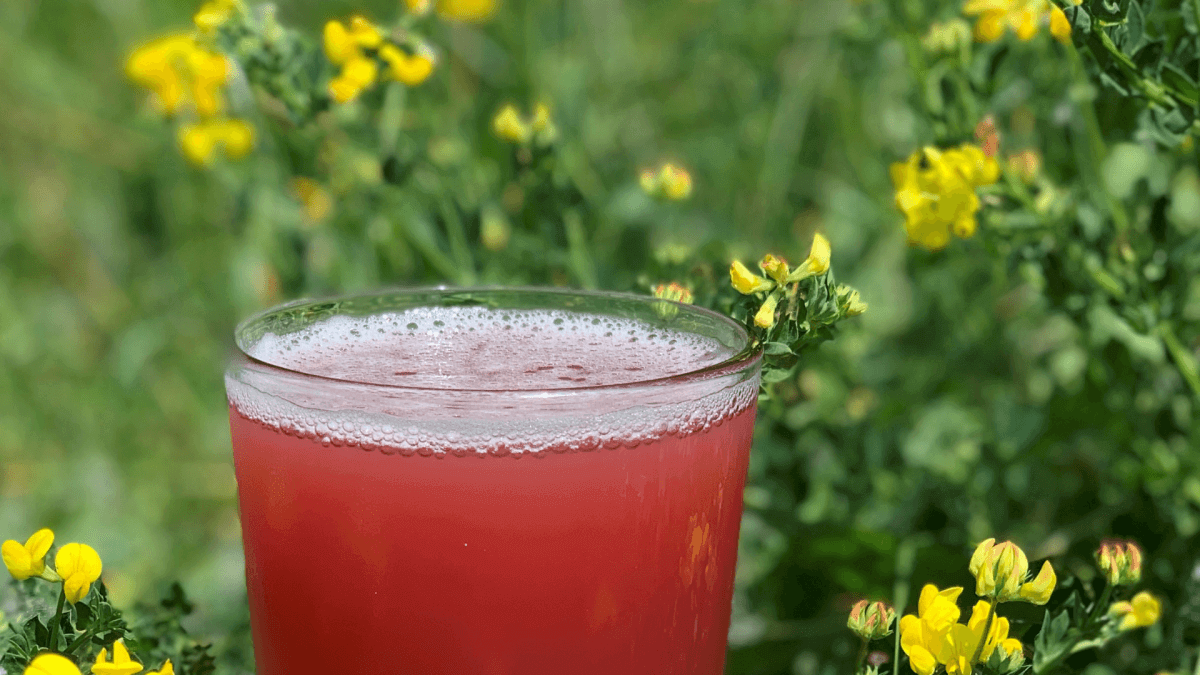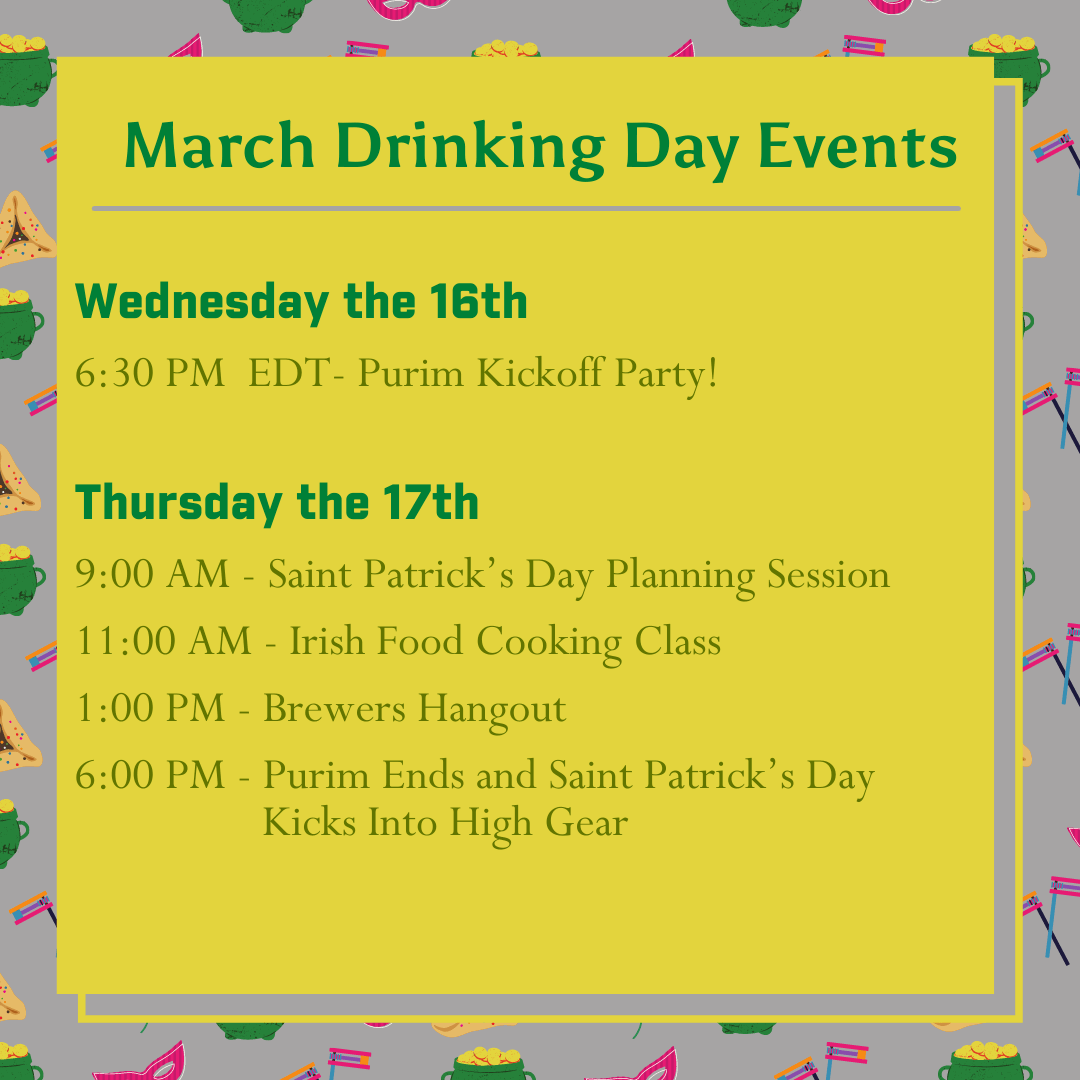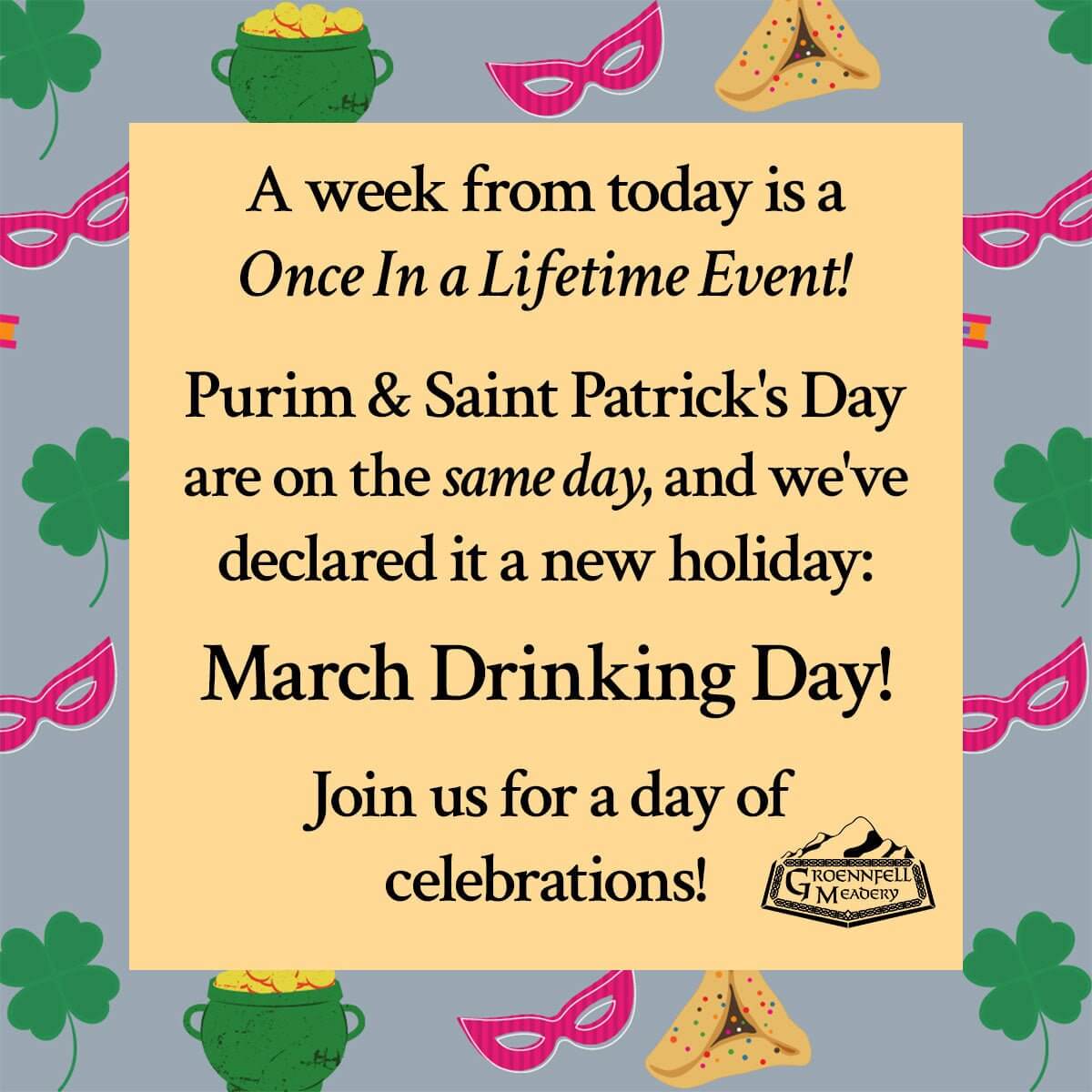As most of you know, The Earth is where Groennfell Meadery is located. It’s also where the vast majority of our team members, families, and customers live. And - though this is probably just a coincidence - over 90% of those people believe that their children and grandchildren will also choose to live on The Earth.
This means that we take our stewardship of the planet very seriously. In fact, Kelly the Boss is the Small Business Representative to the Vermont Climate Council where she and other stakeholders work hundreds of hours per year on the Vermont Climate Action Plan. That’s on top of all of the work we do at the meadery to make sure that future generations will be able to feast together.
We try to incorporate our commitment to people, planet, and prosperity for all into every decision we make, but there’s another very important thing you should know about us: We are incredibly lazy. It’s not quite as pithy to say, “We stand for People, Planet, and Prosperity for All with as little effort as we can possibly manage,” but that last part is actually the secret to our success.
Our goal is to make it as easy as possible to make good decisions for the environment that are as easy as possible to stick with. There are a few tricks for this.
First, there are the decisions that you make once, and they benefit the planet forever. An example of this is our solar array. It was a major investment that will probably eventually pay for itself, but the immediate benefit is that we are not only producing enough solar power to cover all of our operations, but we’re also able cover the entire power needs of our friends at X-Tract Vermont and Rosie’s Confections, then we even have some left over to put back into the grid to help shift Vermont’s power balance to 100% renewables.
We also designed a system where we recapture all the heat from the metabolic activity of our yeast to heat our building throughout the winter, completely eliminating our reliance on fossil fuels for HVAC. We have a super-high-efficiency hot water delivery system for the brewhouse, and we only had to design it once. The cool thing is that it’s also scalable if we ever need to increase our production! Oh, and we’re open source, so all of the plans for the systems are free for anyone who wants to install one!
Then there are the wonderful things that we can automate. These are essentially decisions that we make once, as well. For example, we’ve switched to 100% Renewable Natural Gas. Although all of our HVAC is powered by our solar array, we do use a small amount of renewable natural gas in our production and cleaning process. Thanks to Vermont Gas, we’re able to do it without relying on any fossil fuels!
Oh, here’s another wonderful, lazy thing! We maintain six acres of protected riparian habitat around the meadery and the way we do it is to… wait for it… do nothing! It turns out the woods are very good at taking care of themselves if you let them. That, however, is not precisely our process for Bondegaard.
Bondegaard is Ricky’s pride and joy. It’s a two-acre wild pollinator health project that we’ve been maintaining for over six years. That project requires one major mowing once a year, and then weekly maintenance of the walking trails, but just last year we were finally able to convert all of our field maintenance to electric mowing, which is pretty darn cool.
Even this project is pretty lazy. Everyone told us that we’d have to do intensive plantings to help the land recover from being a hayfield for fifty years. They were wrong. By the third year, we had over forty species of flowering plants, with more popping up every year. Just like the forest, it’s amazing what nature will do if you let it.
This leads us to the second way we make it easy to make the right decisions: Find projects that we absolutely love. Not everyone loves gardening, but a handful of folks on the staff can’t get enough of it! (We actually have a staff Gardening Club that meets every Friday.) Guess who maintains the greenhouse, composting, and the landscaping? Yup, those nuts!
Did you know that there are people who like running calculations on energy use per unit of mead across its production cycle? Yes. Those people exist, and some of them work for us. They can’t get enough of spreadsheets! We sometimes have to cut them off, in fact.
“No more spreadsheets today, Madi, I think you’ve had enough.”
“No, just one more. One for the road.”
“Madi, I’m your friend, and I’m telling you that you really don’t look like you could handle another cell merge today. Go home and sleep it off.”
An extension of this is to make sure that the right person does the right job. For example, Ricky is the only person on the team tall enough to reach the heat pump filters without using a step ladder. Therefore, Ricky cleans the filters.
It sounds silly, but it is so important to remove even small barriers if you can. The number of things that simply don’t get done in this world because someone can’t find a stepladder is staggering.
Then, of course, there are the big projects that never end and have no clear answer. One example should serve: What’s the most ethical way to source honey?
We use about 180,000 lbs. of honey per year, so that means our decisions have a pretty big impact. We can’t source it all locally - the state of Vermont simply doesn’t produce enough. Even all of New England put together doesn’t really have that kind of supply in bulk, so what do we do?
Well, over the years we’ve tried to update our strategy with the most up-to-date information. Is it better to source honey from a place far away where the bees have year-round forage or somewhere closer where they hunker down for the winter? What about bees that are transported for pollination services? Domestic or international?
Every answer, no matter how tentative, only leads to more questions: If we can source from two hours away, but that’s technically international (Canada), is that better or worse than sourcing from the western US? How stringent are the best practices guidance from Canada vs. the US? How rigorously are they followed? And on, and on, and on.
And that’s without even considering the social implications of the honey decision! How important is it to keep money as local as possible? What are the working conditions on farms in different parts of the world? What’s the impact of having seasonal vs. annual harvests on work stability?
While it’s great to automate as much of your environmentalism as possible, simply because it’s easy, there’s one more important reason to do so: It frees up time to work on these outsized, perennial questions.
It’s strangely comforting to know that there will never be a correct answer to these big decisions. There will always be new horizons in the never-ending project of stewardship. Just as the woods that we maintain will never be “finished,” there will never be a correct answer to many of the biggest questions we face.
That’s why, at the end of the day, stewardship requires that we sit quietly and pay attention to the world around us. What does the world ask of me today, and how can I best serve? And, of course, how can I serve best with the least possible effort?














